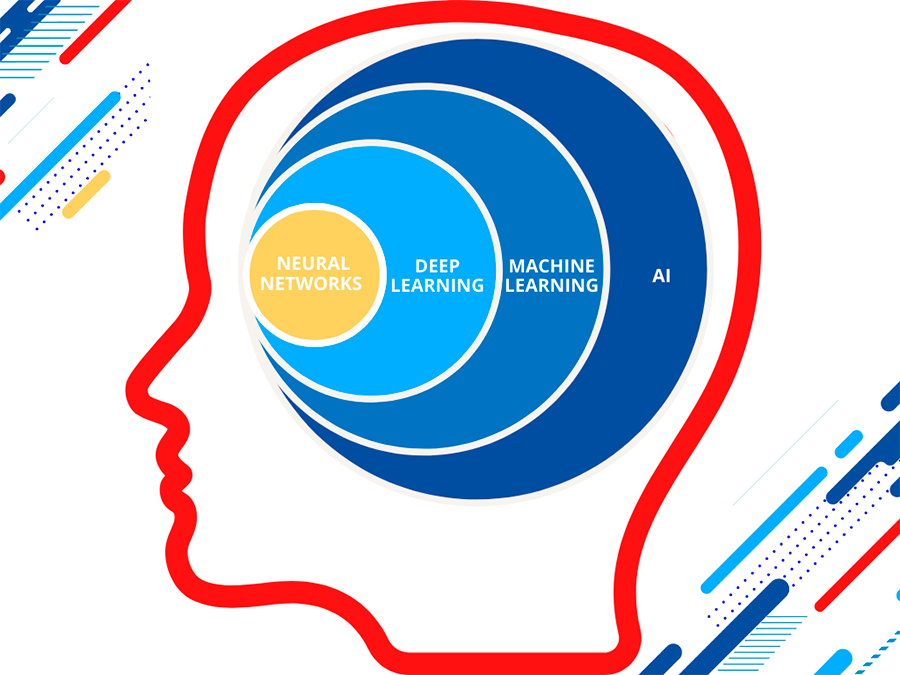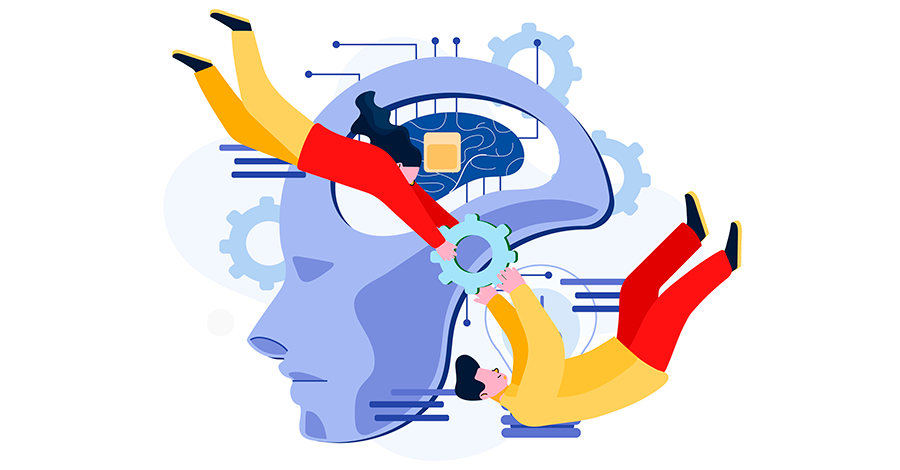Machine learning (ML) is a technology that enables businesses to gain valuable insights from raw data. To do this, an analytical algorithm is programmed allowing us to understand the user better. The adaptability of machine learning distinguishes it from traditional analytical algorithms because it does not need to decipher all of the steps required to solve a problem; the computer is capable of “learning” by analyzing patterns in the data.
the ML algorithm uses data from purchases, the more accurate its predictions will be. We should remember that ML is not Artificial Intelligence. AI is a technology that calculates and makes decisions. Machine Learning is a subset of it and refers to its engineering aspects.
With the insights that ML collects, companies can diagram campaigns, or even prevent banking fraud. We can divide into two the most frequent uses of ML in business:
- Product Recommendations: It is mostly used by the E-Commerce industry and is one of the most popular applications of Machine Learning. It uses a combination of ML and IA. The company’s website pickups up and tracks your behavior based on your online activities (previous purchases, search patterns clicks, cart history).
It creates customized product recommendations, catering to everyone’s preferences.
- Fraud Detection: This ML tech is implemented in the fields of finance and banking. Financial institutions have been able to uncover hidden patterns, detect suspicious activities, and anticipate clerical errors before it’s too late. Everything is supervised and monitored in real time to guarantee that systems and transactions are properly secured. According to the fintech Feedzai, a fine-tuned ML solution can detect 95% of all fraudulent behavior.
Machine Learning benefits for businesses
Machine Learning is changing the way businesses are made. Let’s take a glimpse at the advantages it provides to businesses and organizations.
User behavior analysis
Businesses assemble a huge amount of customer purchase data. Running this data through a Machine Learning algorithm, helps companies predict consumer purchasing habits, market trends, and popular products, allowing retailers to make informed business decisions based on this predicted information.
Smarter automation
We define automation as the process of establishing rules for IT tasks so that they can be completed automatically. Automation saves both time and money. The next step in automation is to incorporate these techniques with machine learning to create continuously improving automation processes.
Machine learning can be used to improve the manufacturing process at the industrial manufacturing level. This can be done by evaluating current manufacturing models and identifying all faults and pain points. ML automation spreads beyond industrial applications to benefit other industries such as agriculture, scientific research, and so on.

Security updates
Businesses use a variety of prevention and control mechanisms to ensure the security of their users and their operations. Machine Learning can be used to boost existing security teams by offloading some monitoring and vulnerability assessment tasks to an automated algorithm.
You can take thread assessment as an example, in which most online applications face various types of attacks on a daily basis. Machine learning can effectively predict future attack vectors by consuming past attack data and recognizing application vulnerabilities. Taking this a step further, development teams can incorporate ML into the application testing phase to evaluate application vulnerabilities before releasing it to a production environment.
Financial administration
Financial analysis can benefit from machine learning algorithms. A small data set combined with a simple ML algorithm will do for simple tasks like predicting a company’s expenses. However, it is also suitable for large business uses. Before entering the market, investors and brokers rely heavily on machine learning to accurately predict market conditions.
Cognitive services
Image recognition technology advancements will enable businesses to create more secure and convenient authentication options, as well as product identification to power autonomous retail services such as cashier-less checkout.
Businesses can easily cater to a wide variety of audiences from various geographic, cultural, and ethnic backgrounds with natural language processing and a better understanding of the benefits offered by ML.
Machine Learning and Natural Language Processing
Natural language processing is a subset of AI that enables machines to communicate using natural language. However, before any of this natural language processing can take place, the text must be standardized.The goal is to divide natural language text into smaller, more manageable chunks. These can then be analyzed by ML algorithms to discover relationships, dependencies, and context between different chunks.
Python, the most popular ML language
It is important to understand that there is no only one “best” language. Each has its own advantages and drawbacks, as well as unique capabilities. It depends on what you are trying to create and your background. And there are a handful of machine learning skills that will help you choose a language. Among these skills are software engineering, data science, deep learning, dynamic programming, and audio and video processing.
However, Python remains to be the most popular machine learning language. It is being used by 57% of data scientists and machine learning developers, and 33% prioritize it for development.
Because the built-in libraries and packages in Python provide base-level code, machine learning engineers do not need to start from scratch. And, as machine learning demands continuous data processing, Python’s built-in libraries and packages can provide support for almost any task. All of this results in less development time and higher productivity when working with complex Machine Learning applications.
Some top libraries for Python include NumPy, Pandas, Matplotlib, Seaborn, and Scikit-Learn.

Three case studies of ML applied to companies
ML and Uber
Uber makes it very simple to save time. As a direct consequence, we owe Uber’s machine learning algorithms for establishing arrival time and destination. The technology explores previous trips and uses this information to assess the effectiveness of your trip.
Michelangelo is the name of the Uber ML platform. It covers the entire ML workflow: Automated data management, training, analysis, and forecasting can assist Uber engineers.
ML and Spotify
If you are one of the 100 million users who have just opened a new playlist to see what Spotify has in store for you, you might be curious about the machine learning algorithms that are powering it. This is a mix of all 30 songs you’ve never heard of before, but you’ll love it. This is known as Discover Weekly, and it does a wonderful job.
ML and PayPal
Large data sets, like purchase dates and times, location, customer information, and customer behavior, can be collected and analyzed using neural networks and machine learning algorithms. In-depth training technology is used in the PayPal online payment system: The company has developed a large system for collecting and analyzing ethical patterns in order to protect customers.
PayPal engages machine-learning algorithms to detect and combat fraud. PayPal analyzes customer data and assesses risk more effectively by implementing in-depth learning strategies.
Conclusions
As we have seen, ML changed the way of doing business. User profiles can be learned more efficiently and quickly, based on their online purchasing preferences or hobbies, with the use of the proper algorithms. And it also makes it possible to detect and prevent bank fraud.
If you want to learn more about it, in Inclusion Cloud we have analyzed the uses of Machine Learning for businesses in .Net.
If you are looking for top-level developers trained in ML improvements, check out our solutions here!





